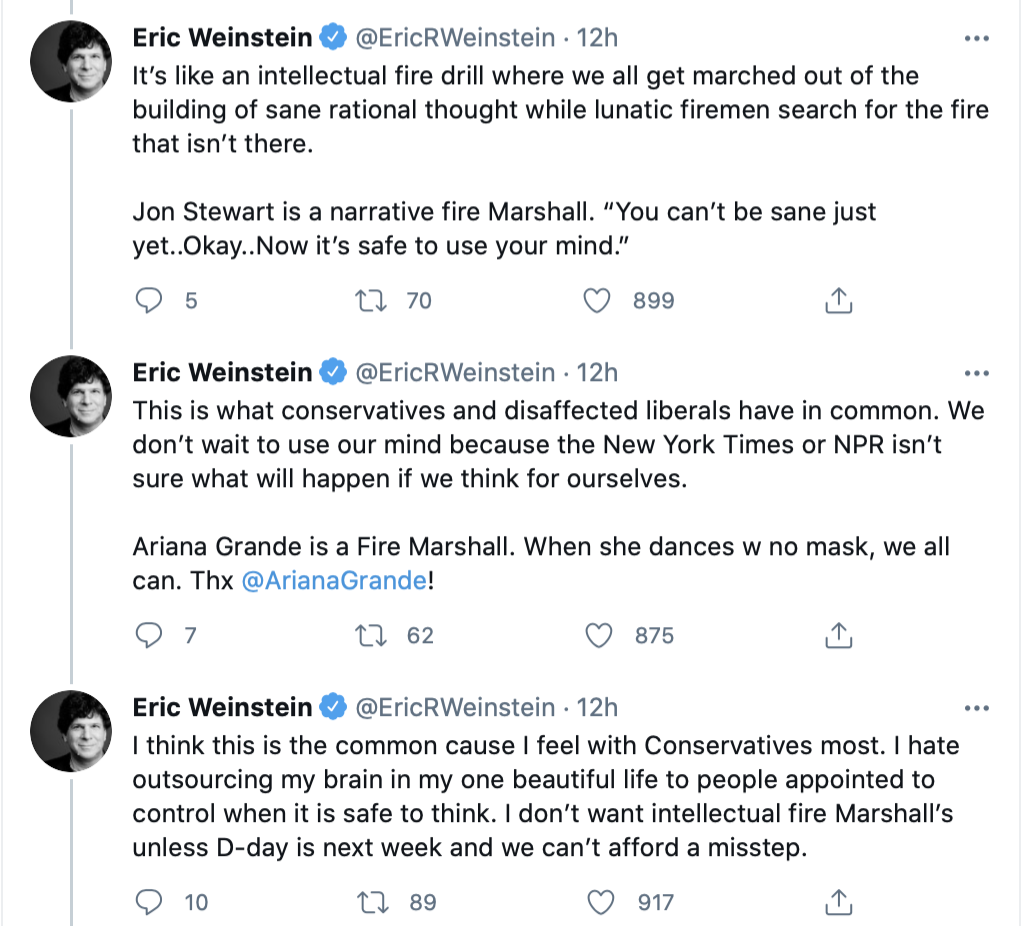Ed Snowden has begun writing at Substack. He has named his column “Continuing Ed.” In his first post he discusses the most dangerous form of censorship, beginning his essay with a quote by Serbian-Yugoslav writer Danilo Kiš. Kiš, who narrowly escaped the Holocaust and whose work was eventually suppressed in Yugoslavia, wrote passionately on this struggle:
Whichever way you look at it, censorship is the tangible manifestation of a pathological state, the symptom of a chronic illness which develops side by side with it: self-censorship. Invisible but present, far from the eyes of the public, buried deep down in the most secret parts of the spirit, it is far more efficient than [official] censorship. While both of them induce (or are induced?) by the same means — threats, fear, blackmail — this second ill camouflages, or at any rate does not denounce, the existence of any outside constraint. The fight against censorship is open and dangerous, therefore heroic, while the battle against self-censorship is anonymous, lonely and unwitnessed, and it makes its subject feel humiliated and ashamed of collaborating.
Snowden’s essay is a commentary on this most dangerous form of censorship: self-censorship:
“Lonely and unwitnessed,” “dangerous and condemnable” — Kiš’s perfect and tragic adjectives — describe how many people feel today, when confronted with the internet’s many opportunities for self-presentation, and equally many opportunities for self-destruction. Under the pitiless eye of mass surveillance, which funnels the most tentative keystroke into our permanent records, we begin to surveil ourselves.
Unlike in Kiš’s milieu, or in contemporary North Korea, or Saudi Arabia, the coercive apparatus doesn’t have to be the secret police knocking at the door. For fear of losing a job, or of losing an admission to school, or of losing the right to live in the country of your birth, or merely of social ostracism, many of today’s best minds in so-called free, democratic states have stopped trying to say what they think and feel and have fallen silent. That, or they adopt the party-line of whatever party they would like to be invited to — whatever party their livelihoods depend on.
I constantly feel that urge to self-censor, because I know that I’m pissing off people who will be vocal, many of whom I consider to be friends. I assume–perhaps presumptively–that many more will agree but will be silent). I often speak up anyway because I know that silent acquiescence by the supposed owners of this country is not a healthy want to run the country. I motivate myself to speak out by thinking of the many brave people who have spoken out against ignorance and injustice under conditions that are far more dangerous than anything I have ever faced.
A man dies when he refuses to stand up for that which is right. A man dies when he refuses to stand up for justice. A man dies when he refuses to take a stand for that which is true.
– Martin Luther King, Jr.
As a general rule, people should publicly say the sorts of things that they are thinking. The American experiment requires that we collaborate with each other, and the best way is by using our words instead of throwing rocks and shooting guns. When we talk openly, we will offend others, and that is the unavoidable cost of free speech. When we bravely say the things we are thinking, we are able to function imperfectly as a coordinated whole, e pluribus unum. When a person self-censors, that person is only pretending to be part of the body politic. A wide-open national cacauphonous chattering is what bubbles up, in the aggregate into public policy. Any form of censorship thus degrades democracy and impairs social flourishing, even to the extent that idea seems like a terrible and offensive idea.
As Snowden describes, self-censorship is insidious. No one will come to your rescue because you are not making any public call for help. Further, it’s easy to get used to self-censorship because there is a constant immediate cheap payback: it is extraordinarily rare that anyone will criticize you for failing to speak your mind on an important topic. Our self-censorship constitutes a payment to an intellectual protection racket. Institutions and governments won’t shit on you so much when you muzzle your words and thoughts. That deal works out well enough for those who are willing to look in the mirror everyday to see someone lacking the courage of their convictions.



My problem with both Snowden and Manley is that neither was sufficiently mature nor experienced to appreciate all of the long-term effects of releasing what they did.